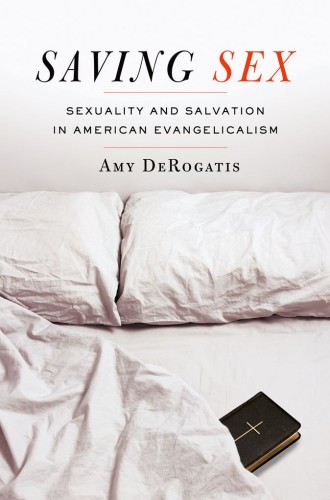Saving Sex, by Amy DeRogatis
In their 1972 sex manual for Christians, Tim and Beverly LaHaye wrote that sex is “the most thrilling, exciting, and fulfilling experience in the world (if done properly).” Their very popular The Act of Marriage—still in print—is just one in a long tradition of books of sexual advice for Christians.
Contrary to the stereotype that they are unable or unwilling to talk about sex, evangelicals of every stripe are handing out advice on sexuality for every moment of a (heterosexual) person’s life. In Saving Sex, Amy DeRogatis explores the world of evangelical sex manuals, from purity books for teens to childbearing books for young mothers, by authors from the LaHayes to T. D. Jakes.
“Anyone who has observed American evangelical culture over the past few decades knows that . . . evangelicals can’t stop talking about sex,” DeRogatis writes. They talk about how sex is a blessing from God, how God created sex for the purposes of human pleasure, how important female sexual pleasure is, and so on. This is not the sex-shaming culture of the past.






